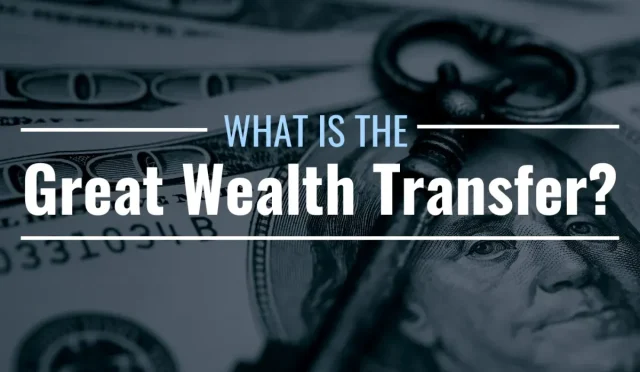UK Wealth Tax: A Call for Fairness in Climate Funding
The UK wealth tax is emerging as a pivotal solution to address income inequality and fund vital climate initiatives. With an increasing number of climate groups advocating for this form of taxation, there is a growing consensus that the wealthiest members of society must contribute more to secure a sustainable economy. Campaigns such as the Pay Up initiative spotlight the necessity of redirecting fortunes held by the super-rich to support essential green investments and public services without burdening the economically disadvantaged. This movement calls for a fairer tax system, one that ensures tax justice by holding the ultra-wealthy accountable for their vast fortunes. As the situation unfolds, the call for a wealth tax illustrates a critical intersection between economic reform and urgent climate action, raising awareness about the socio-economic disparities that persist in the UK.
Recently, discussions around implementing a levy on substantial assets in the UK have gained traction, with many advocates suggesting that such measures could stimulate significant financial support for environmental projects. This taxation approach, often referred to as a sustainable wealth contribution, aims to reverse the trend of income inequality that disproportionately affects low-income households during this climate crisis. The push for a climate action tax is being embraced by groups who emphasize that funding for a sustainable economy should not come at the expense of ordinary citizens. By instituting a wealth tax campaign, activists argue that it is essential to reinvest in crucial public services, aligning economic reform with the pressing need for ecological responsibility. As debates continue, the focus is not only on wealth redistribution but also on fostering a sustainable future for all.
The Case for a UK Wealth Tax
As the climate crisis intensifies, the call for a UK wealth tax has become increasingly pertinent. Campaigners argue that the wealthiest individuals and corporations should contribute more towards the funding of a sustainable economy. With assets concentrated among the super-rich, a wealth tax could generate substantial revenue that is essential for public services and climate action initiatives. The statistics are staggering: a modest 2% tax on wealth over £10 million could yield around £22 billion annually, helping to alleviate the funding shortfall faced by public sectors such as education and healthcare.
Moreover, the argument for a wealth tax ties closely with the principles of tax justice. Wealth generated from investments or assets should not be privileged over income earned from hard work. By aligning capital gains tax with income tax rates, the government could foster a more equitable tax system that addresses income inequality. This shift would not only help to fund climate initiatives but also ensure that the burden of funding these efforts does not fall disproportionately on lower-income individuals. Such measures would represent a significant step towards economic fairness and environmental responsibility.
Connecting Climate Action and Economic Equality
The ongoing dialogue between climate action and economic inequality highlights a fundamental truth: without addressing the wealth gap, efforts to combat climate change may fall flat. Campaigners from groups like GND Rising maintain that those who have amassed wealth through industries that contribute to pollution must be held accountable. By instituting a wealth tax targeting the ultra-rich, the government could redirect funds to develop green technologies and promote sustainable practices, thus benefiting environment and society equally.
Critics often claim that imposing a wealth tax will lead to an exodus of wealthy individuals from the UK; however, research shows no significant movement of the super-rich abroad. Instead, the argument for maintaining their status quo disregards the reality of stagnant wages and escalating living costs faced by the average citizen. By ensuring that the affluent contribute their fair share, the government can create a dual solution that not only funds climate initiatives but also mitigates the adverse effects of income inequality, ultimately fostering a more sustainable and fair economy.
Grassroots Movements for Tax Justice
Grassroots movements have played a pivotal role in pushing for a wealth tax and tax justice in the UK. Campaigns like Pay Up and initiatives led by various civil society groups have mobilized the public, raising awareness about how the ultra-rich benefit disproportionately from existing tax structures. The sit-ins and protests at locations associated with the wealthy serve to illustrate the growing discontent among citizens who feel left behind. Such actions not only raise awareness about tax injustices but also strengthen the call for urgent legislative changes that take climate action into account.
Furthermore, the unity among diverse campaigners strengthens the argument for a wealth tax by demonstrating widespread support for reform. The inclusion of multiple stakeholders—from environmental activists to labour unions—underscores the interconnectedness of climate action and economic fairness. By rallying around the call for a wealth tax, these groups emphasize that achieving a sustainable economy requires systemic changes to how wealth is taxed, thereby ensuring that solutions to climate change are not disproportionately borne by the most vulnerable populations.
The Political Landscape Surrounding Wealth Taxation
The political discourse surrounding wealth taxation in the UK has gained momentum, with notable figures from various political backgrounds voicing their support. Economists and policy experts are increasingly advocating for reforms that treat wealth accumulation more equitably, challenging the narrative that tax increases on the rich will unduly harm the economy. Influential voices, including those from the Labour Party, have highlighted the need for systemic changes that could secure funding for public services and bolster climate action initiatives.
Yet, proponents of wealth tax face resistance from the very individuals who would be impacted by such policies. The super-rich, along with their advisors, often argue against wealth taxes, suggesting they would discourage investment and lead to a brain drain of high earners. However, studies indicate that the number of millionaires in the UK has been increasing, undermining the argument that tax policies would drive them away. Instead, the focus should shift towards ensuring that the wealthiest contribute fairly to the societal issues exacerbated by their economic standing, such as climate change and economic inequality.
Public Sentiment on Wealth Inequality
Public sentiment is increasingly aligning with the notion that wealth inequality must be addressed through taxation. Many citizens are aware of the disparities that exist, particularly in light of the recent economic turmoil and ongoing cost of living crisis. Polling data often reveals that a significant percentage of the population supports implementing a wealth tax to redistribute resources more fairly. This shift in public opinion has been pivotal in bringing the issue to the forefront of political agendas.
As campaigners continue to illustrate the relationship between wealth inequality and the urgency of climate action, more people are joining the call for a comprehensive wealth tax. The narrative that wealthy individuals must contribute more to the common good resonates with an increasingly aware citizenry. It encourages individuals to reflect on their own economic situations and recognize that, while the super-rich accumulate vast fortunes, many are struggling to make ends meet. This growing consensus has the potential to drive legislative changes that reflect the public’s desire for a more equitable economic system.
The Role of Think Tanks in Advocating for Change
Think tanks play a crucial role in shaping discussions around tax reform and climate policy in the UK. By conducting research and providing evidence-based recommendations, these organisations serve as important voices in the dialogue on wealth taxation. Their reports often highlight the benefits of progressive tax policies, advocating for financial systems that promote sustainability and equity. Through rigorous analysis, think tanks can present compelling cases for implementing a wealth tax as a means of addressing both environmental and social justice issues.
Moreover, think tanks facilitate public forums and discussions that engage various stakeholders, providing platforms for diverse voices to be heard. By fostering collaborative dialogues between economists, policymakers, and activists, they contribute to a more comprehensive understanding of the issues at hand. As discussions surrounding wealth taxation gain traction, think tanks remain a vital resource for evidence, advocating for sustainable economic solutions that align with the principles of tax justice, especially in the context of tackling climate change.
Transformative Effects of Wealth Taxation on Public Services
One of the most compelling arguments for implementing a wealth tax is its potential to significantly bolster public services. Revenue generated from taxing the wealthy could be funnelled into crucial areas such as education, healthcare, and infrastructure, all of which have suffered under years of austerity measures. Campaign advocates argue that a wealth tax would not only alleviate financial burdens but also create job opportunities in sectors that are pivotal for building a sustainable economy.
Furthermore, improved public services can enhance social equity by providing every citizen, regardless of their economic status, access to essential resources. By ensuring that the ultra-rich contribute more, society can begin to rebalance wealth distribution, promoting a healthier, more cohesive community. The benefits derived from wealth taxation extend beyond immediate financial gains; they lay the groundwork for a more resilient economy that prioritizes the well-being of all citizens, ensuring that climate action is supported by robust social systems.
Together in Action: The Future of Tax Reform
As calls for a wealth tax intensify, the movement for tax reform in the UK reflects a growing consciousness about economic inequality and climate responsibility. Various groups are rallying together, uniting under the banner of tax justice to advocate for systemic change that would ensure the wealthiest contribute fairly to societal challenges. This collective action presents a formidable force for change, signalling to policymakers that the public demands attention to these pressing issues.
Looking ahead, the success of the movement will depend on the ability of activists, economists, and citizens to maintain momentum and keep tax reform at the forefront of political discourse. By amplifying their voices and highlighting the intersection of climate action with economic equity, this movement has the potential not only to reshape the tax landscape but also to create a sustainable future. The question remains whether the political will exists to adopt these necessary reforms, but the collective advocacy for a wealth tax provides hope for a more equitable and environmentally responsible economy.
Frequently Asked Questions
What is the UK wealth tax and why is it important for tax justice?
The UK wealth tax is a proposed taxation system that aims to tax the ultra-rich on their net wealth, particularly targeting assets exceeding £10 million. This tax is important for tax justice as it seeks to address income inequality by ensuring that wealthy individuals contribute fairly, providing much-needed funding for public services and climate action initiatives that benefit society as a whole.
How could implementing a UK wealth tax impact the sustainable economy?
Implementing a UK wealth tax is expected to generate significant revenue that could be invested in a sustainable economy. By taxing the super-rich, the government could fund projects that promote green technologies and infrastructure, ensuring that the transition to a sustainable economy does not disproportionately impact lower-income individuals.
What are the proposed tax rates for the UK wealth tax campaign?
The wealth tax campaign suggests a 2% tax on assets over £10 million and calls for closing tax loopholes. This approach aims to align capital gains tax with income tax rates and increase taxes on property and shares, creating a fairer tax environment that supports social equity and climate action.
What role do climate groups play in advocating for a UK wealth tax?
Climate groups are at the forefront of advocating for a UK wealth tax, emphasizing that extreme wealth concentration among the super-rich hinders progress towards climate action. They argue that the tax can relieve financial pressure on public resources and allows for investments necessary to tackle climate change while enhancing social equity.
Are there any concerns about wealthy individuals leaving the UK if a wealth tax is implemented?
Opponents of a UK wealth tax often express concerns that the ultra-wealthy may leave the country to avoid taxation. However, experts suggest that there is no substantial evidence of a mass exodus, and the overall number of millionaires in the UK has steadily increased over the past years. The focus remains on fair contributions from the super-rich to address pressing social and environmental challenges.
How can a UK wealth tax address income inequality?
A UK wealth tax can address income inequality by targeting the vast fortunes of the ultra-wealthy, redistributing wealth through government funding of public services and social programs. This approach aims to create a more equitable society where everyone, regardless of wealth, contributes to the common good and has access to essential resources.
What impacts could a wealth tax have on public services in the UK?
A wealth tax could significantly impact public services by generating billions in revenue, which could be directed towards healthcare, education, and infrastructure improvements. This funding is crucial for rebuilding decimated public services, providing better resources for communities, and addressing the needs of the population.
How does the wealth tax intersect with climate action initiatives in the UK?
The wealth tax intersects with climate action initiatives by ensuring that the financial burden of climate change does not fall on lower-income populations. By taxing the super-rich, the government would have additional resources to invest in sustainable practices, green technologies, and climate resilience efforts, demonstrating that tackling climate issues and economic inequality are interconnected.
What is the Pay Up campaign and its connection to the UK wealth tax?
The Pay Up campaign, supported by various civil society groups, advocates for a wealth tax as a means to fund climate action and public services. This campaign emphasizes the urgency of taxing extreme wealth to redistribute resources in a way that supports the sustainable economy and fosters equity, highlighting the need for financial accountability from the ultra-rich.
| Key Points | Details |
|---|---|
| Climate Groups Demand Action | Increasing campaigns call for the introduction of a wealth tax to ensure the transition to a sustainable economy is fair and does not disadvantage the poor. |
| Protests Against the Wealthy | Activists from Green New Deal Rising staged demonstrations against wealth inequality at several high-profile sites linked to the super-rich in the UK. |
| Pay Up Campaign | Supported by over 20 civil society groups, the campaign urges the government to implement wealth taxes as a means to restore public services and tackle climate issues. |
| Economic Impacts of Wealth Tax | A proposed 2% tax on assets over £10 million could generate around £22 billion annually, with additional tax reforms potentially adding another £50 billion. |
| Broader Political Support | There is increasing political advocacy for wealth taxes, with support from notable Labour figures and economists, although opposition exists from wealthy individuals. |
| Tackling Economic Inequality | The climate crisis is intertwined with economic inequality; campaigners argue that resolving one requires addressing the other. |
Summary
The UK wealth tax is gaining momentum as climate groups advocate for a fair tax system that addresses both climate change and economic inequality. As campaigners argue, it is essential that the wealthiest individuals contribute to funding the transition towards a sustainable economy, thus alleviating pressure on lower-income communities. The call for a comprehensive wealth tax reflects a growing recognition that true sustainability cannot come at the expense of economic justice.
#UKWealthTax #ClimateFunding #TaxJustice #GreenEconomy #FairTaxation








